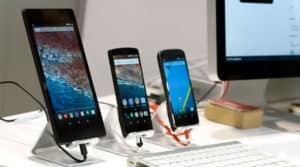
There is a big market for used cell phones around the world. Accordingly, we come into contact with many entrepreneurs who are involved in the secondary cell phone market. As a result, we have handled many cases involving refurbished or remanufactured cell phones.
Your typical fact pattern involves a U.S. company that would export broken cell phones to a refurbishing center in a foreign country. Depending on the nature of repair, the cell phones would undergo a thorough repairing process before they are considered to be back in good working order. Subsequently, the cell phones are shipped back to the United States.
Prior to delivery to the importer, these now remanufactured or refurbished cell phones must clear through customs. U.S. Customs and Border Protection (“CBP” or “Customs”) is the responsible federal agency for determining the admissibility of such products. When it comes to investigation and delays for remanufactured or refurbished cell phones we have seen that questions involving intellectual property rights are most notably at issue. Specifically, Section 526(e) of the Tariff Act of 1930, as amended, provides that merchandise bearing a counterfeit mark within the meaning of Section 1127 of Title 15, that is imported in violation of Section 1124 of Title 15, shall be seized and, absent the consent of the trademark owner, forfeited for violations of the Customs laws. 19 U.S.C. Section 1526(e).
The first prong of section 526(e) requires that the imported merchandise bear a counterfeit mark as defined by section 45 of the Act of July 5, 1946 (the “Lanham Act,” codified as amended at 15 U.S.C. Section 1127. Section 45 of the Lanham Act defines the term counterfeit as “a spurious mark that is identical with or substantially indistinguishable from, a registered mark.” 15 U.S.C. Section 1127.
The second prong requires that the merchandise, in addition to bearing a counterfeit mark, shall have been imported in violation of section 42 of the Lanham Act, which provides:
Except as provided in subsection 1526 (d) of Title 19 . . . no article of imported merchandise . . . which shall copy or simulate a trademark registered in accordance with the provisions of this chapter . . . shall be admitted to entry at any customhouse of the United States . . . .
15 U.S.C. Section 1124. A “copying or simulating” trademark or trade name is one which may so resemble a recorded mark or name as to be likely to cause the public to associate the copying or simulating mark or name with the recorded mark or name. 19 C.F.R. Section 133.22(a).
Questions arise as to whether there is a violation of a trademark when one is selling remanufactured or refurbished goods under the original manufacturer’s U.S. trademark. As a general matter, it is not a violation to sell such goods without deceiving consumers provided that one attempts so far as possible to restore the original condition of the goods and full disclosure is made about the true nature of the goods i.e. that they are remanufactured or refurbished goods. Nitro Leisure Products, L.L.C. v. Achushnet Co., 341 F.3d 1356, 1361 (Fed. Cir. 2003). Accordingly, there is information one can provide to CBP to prove that your goods do not violate any trademark laws. This depends on the nature of remanufacturing or refurbishing done to the product, how it was imported, and the documents one has regarding their purchase.
If you find yourself in a position where your remanufactured or refurbished goods are detained or seized by CBP contact an attorney who is familiar with Customs and International Trade laws and regulations as well as the secondary cell phone market business.
For more information about an importing remanufactured or refurbished cell phone products or for assistance with any of the issues noted above, contact Abady Law Firm, P.C., at 800.549.5099, to speak with a international trade attorney today!

